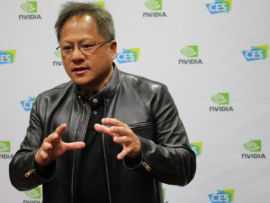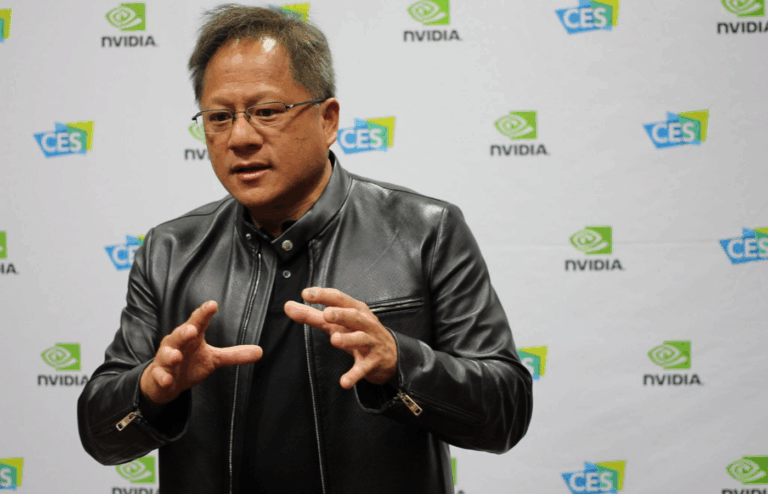
NVIDIA has unveiled its new roster of partnerships with UK institutions at London Tech Week. These partnerships include providing two cloud companies with its GPUs, opening a new training centre, and building a platform for testing financial technologies powered by artificial intelligence.
UK Prime Minister Sir Keir Starmer and his government will undoubtedly view the slew of new initiatives as further proof that his AI Opportunities Action Plan, announced in January, is being implemented. In December, the country ranked third in the world for AI readiness, according to research from Stanford University, trailing significantly behind the US and China.
Turning vision into ‘action’
Starmer said he wanted to position the UK as an “AI maker, not an AI taker,” and NVIDIA claims to be helping make this vision a reality, according to the Action Plan.
Firstly, it has established the UK Sovereign AI Industry Forum, a coalition of British businesses committed to advancing sovereign AI infrastructure and supporting the domestic growth of AI startups. Members include BT, National Grid, and BAE Systems. This was announced onstage by NVIDIA CEO Jensen Huang, alongside Starmer.
Next, the US chipmaker has committed to supplying cloud providers Nscale and Nebius with 10,000 and 4,000 Blackwell GPUs, respectively. It will build the so-called “NVIDIA AI Technology Center” to train developers in AI and accelerated computing. TechRepublic has reached out to NVIDIA for more information about its location and projected opening date.
SEE: AI Future Debated Among Global and Tech Leaders at First SXSW London
NVIDIA’s accelerated computing platform will form the basis of a digital sandbox to be used by developers creating new fintech products. This will provide a safe environment, overseen by the Financial Conduct Authority, for testing technology that could, for example, help combat fraud or stock market manipulation.
The company is supporting Barclays’ Innovation Hub in London, a co-working space for startups, by offering founders access to the NVIDIA Inception program. This provides them with tools and networking opportunities with venture capitalists to help their company scale.
Finally, NVIDIA is offering new AI tools, 6G research platforms, and training resources to UK universities to support research into AI-native wireless networks, in collaboration with the UK Department for Science, Innovation and Technology.
UK determined not to fall any further behind in AI
“We have big plans when it comes to developing the next wave of AI innovations here in the UK — not only so we can deliver the economic growth needed for our Plan for Change, but maintain our position as a global leader,” UK science minister Peter Kyle said in a statement.
“Central to that is making sure we have the infrastructure to power AI, so I welcome NVIDIA setting up the UK Sovereign AI Industry Forum — bringing together leading British businesses to develop and deploy this across the UK so we can drive growth and opportunity.”
Although the UK is a global AI leader, 2024 saw its first marked decline in newly launched tech startups.
In his nearly a year in charge, Starmer has been dogged in his attempt to differentiate the country from the relatively risk-averse EU when it comes to AI legislation, which puts off tech giants that don’t want their growth potential limited. He renamed the UK’s AI oversight body from the AI Safety Institute to the AI Security Institute and skipped the Paris AI Summit, where the UK declined to sign a global pledge for “inclusive and sustainable” AI, just like the US.
Indeed, the US is home to many potential sources of AI investment. NVIDIA, for instance, has been supporting British AI initiatives for a number of years, such as through the supply of 5,000 Grace Hopper Superchips to the Isambard supercomputer at the University of Bristol. Yesterday, it also signed two Memorandums of Understanding, pledging to support the UK AI talent pipeline and advancing university AI research, such as by expanding its Bristol AI lab elsewhere in the country.
Limiting AI innovation in the UK could have a significant economic impact, with a Microsoft report finding that adding five years to the time it takes to roll out AI could cost over £150 billion. However, there are growing concerns that crucial safeguards around AI systems may be sidelined in favour of bullishly pursuing economic gains and staying in US President Donald Trump’s good graces.

